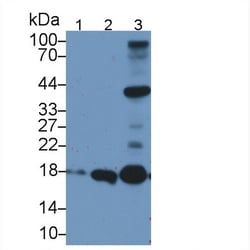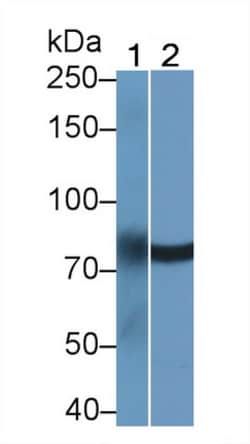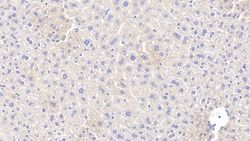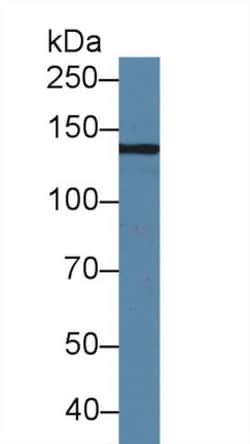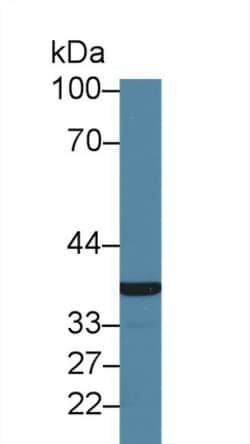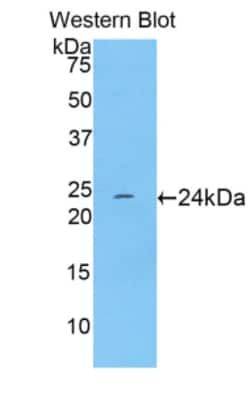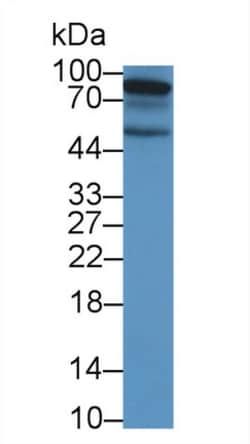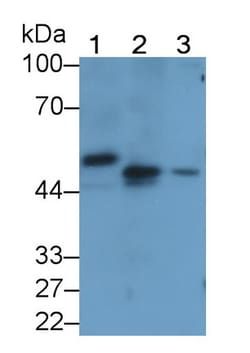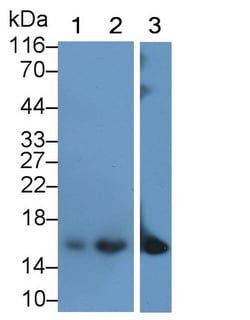Apolipoprotein O Polyclonal Antibody, Invitrogen™
Rabbit Polyclonal Antibody
Manufacturer: Fischer Scientific
The price for this product is unavailable. Please request a quote
Antigen
Apolipoprotein O
Applications
Immunocytochemistry, Immunohistochemistry (Paraffin), Western Blot
Conjugate
Unconjugated
Host Species
Rabbit
Target Species
Human, Mouse, Porcine
Gene Accession No.
Q9BUR5, Q9DCZ4
Gene ID (Entrez)
100525438, 68316, 79135
Immunogen
Recombinant Human APOO protein, Lys26-Lys198 (Accession #Q9BUR5)
Primary or Secondary
Primary
Content And Storage
Store at 4°C short term. For long term storage, store at -20°C, avoiding freeze/thaw cycles.
Concentration
0.5 mg/mL
Classification
Polyclonal
Form
Liquid
Regulatory Status
RUO
Formulation
PBS with 50% glycerol and 0.05% Proclin 300, pH 7.4
Gene Alias
0610008C08Rik, 1110019O03Rik, Apolipoprotein O, APOO, brain my025, FAM121B, family with sequence similarity 121B, MGC4825, Mic23, MIC26, MICOS complex subunit Mic23, MICOS complex subunit MIC26, My025, MYO25, Protein FAM121B, RGD1565289, UNQ1866/PRO4302
Gene Symbols
APOO
Isotype
IgG
Purification Method
Protein A
Gene
APOO
Description
- This gene is a member of the apolipoprotein family
- Members of this protein family are involved in the transport and metabolism of lipids
- The encoded protein associates with HDL, LDL and VLDL lipoproteins and is characterized by chondroitin-sulfate glycosylation
- This protein may be involved in preventing lipid accumulation in the myocardium in obese and diabetic patients
- Alternative splicing results in multiple transcript variants
- Pseudogenes of this gene are found on chromosomes 3, 4, 5, 12 and 16.
